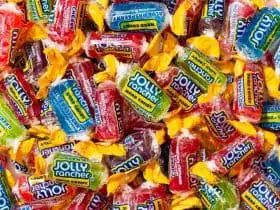Veganism is rapidly gaining popularity these days. Aside from teaching us to eat healthier alternatives, it also helps us discourage animal cruelty as a whole. That’s why more people are embracing the vegan lifestyle.
But let’s face it – going vegan isn’t easy. You don’t just have to avoid meat, but other animal by-products as well. That can be tricky.
If you’re at the start of your vegan journey, allow us to help you along the way. In this article, we’ll answer one of the biggest questions we’re often asked: is lactic acid vegan?
What is lactic acid or E270?
Before we discuss whether lactic acid is vegan or not, we want to define what lactic acid is first.
Lactic acid, otherwise known as E270, is a chemical that is produced by our bodies when our cells convert glucose into energy without the help of oxygen. As such, we often produce it whenever we perform strenuous activities, such as working out or getting into intense sports.
What is lactic acid used for?
Aside from assisting us in converting glucose into energy, lactic acid aids us in more ways than one. And you’d be surprised by what it can do.
Thanks to modern science and technology, lactic acid is not used for several purposes. It can be used as a fermentation agent, a curing agent, a food preservative, and a food flavoring, to name a few. That’s why it’s famous for being part of the beer-making process, presence in certain cheeses and yogurt, and is also responsible for the rich flavor we taste in sourdough.
Aside from its participation in food processing and production, lactic acid also has many skincare benefits. It can be used as an exfoliant to get rid of dull and dead skin cells, get rid of hyperpigmentation, and treat uneven complexions and sunspots.
Thus, it’s easy to see that lactic acid is essential to the many day-to-day processes of life.
What is lactic acid derived from?
At this point, we’re now ready to answer this question: what is lactic acid derived from?
From our earlier definition of lactic acid, we can see that this chemical is produced when our body needs to convert glucose into energy whenever there’s a lack of oxygen in our system. From this, we can also infer that some animals and animal byproducts can also produce lactic acid.
However, we now live in an age where science seems to provide us with alternatives to everything – and that includes deriving lactic acid from plant-based sources.
In this case, experts use carbohydrates from plant-based sources that are rich in glucose or sucrose. The carbohydrates go through a fermentation process, thanks to the help of good bacteria that are added into the mix. The bacteria then aid in extracting energy from glucose, which also results in the production of lactic acid.
Popular sources of plant-based carbohydrates include deets, cornstarch, and sauerkraut.
Is lactic acid in dairy?
Now that we know what lactic acid is derived from, you may be curious to know whether lactic acid is present in animal byproducts such as dairy.
There is much confusion surrounding this topic, primarily because lactic acid is often confused with lactose. You see lactose refers to the type of sugar that’s present in dairy-based products such as milk and cheese. On the other hand, lactic acid is a chemical that’s produced when sugar is broken down to produce energy.
From this explanation, we can see that lactic acid may be present in the dairy at a certain point. Since dairy products contain lactose, which is a type of natural sugar, this sugar can be broken down through a fermentation process to eventually produce lactic acid.
A good example would be cheese. Since cheese is produced through fermenting milk, it is undeniable that cheese already contains high amounts of lactic acid. The same is true when the milk has already turned acidic since this means that the lactose has already started to ferment.
So to answer the age-old question, “is lactic acid in dairy?”, we give you a qualified answer. And that is, only once the milk’s lactose content has already been broken down to produce lactic acid.
Does vegan yoghurt contain lactic acid?
Another question that always gets thrown our way is this: does vegan yoghurt contain lactic acid?
We understand that it’s important to eat healthy while also making sure you get the right amounts of lactic acid in your system. That’s why we’re finally addressing this question here.
But before anything, we want to briefly discuss what goes in a vegan yoghurt. This fairly recent concoction is produced from plant-based milk, grain, and good bacteria. The plant-based milk will contain naturally occurring sugar which can be broken down by the bacteria, and that gives us lactic acid.
Thus, vegan yoghurt does contain lactic acid. But since it’s a plant-derived alternative, it’s perfectly acceptable for vegan consumption.
What food is high in lactic acid?
With all this information in mind, we’re sure that you would like to know more information about what food is high in lactic acid. After all, veganism is a lifestyle, so you have to embrace every aspect of it to truly be immersed in it – especially when it comes to the food you eat.
For your reference, here is some vegan-friendly food that is rich in lactic acid:
- Fermented vegetables such as pickles and kimchi;
- Tofu, soy milk, and other soy-based products;
- Malt-based drinks such as beer;
- Dairy-free bread and similar baked goods, such as sourdough;
- Peanuts, peas, beans, and other legumes;
- Eggplants;
- Carrots;
- Tomatoes;
- Capers;
- Cucumbers;
- Plant-based vegan cheeses, and other food that use plant-based cheese such as pizza.
Aside from the food, we have listed above, lactic acid is also present in fruits. Particularly, these fruits are rich in good bacteria that help break down the sugars to produce lactic acid. So which fruits have lactic acid? Here are just some of them:
- Blueberries
- Strawberries
- Papaya
- Kiwi
- Cherries
- Plums
- Pineapple
While this list of fruits seems limited, you can make the most out of almost any fruit and produce healthy amounts of lactic acid. Remember that most fruits are rich in fructose, a type of natural sugar that can also be broken down into lactic acid through fermentation. Thus, you can follow any fruit fermentation recipe to produce a delicious and healthy snack.
Conclusion: Is Lactic Acid Vegan?
All things considered, we can now give you a solid answer to the question, “is lactic acid 270 vegan?” We have to make a qualified statement and say that there may be vegan-friendly sources of lactic acid.
As we have previously mentioned, while lactic acid naturally occurs within the human anatomy, as well as in some mammals, that does not mean that it is the only source of this chemical. Certain experiments have led to the production of plant-based lactic acid, making it perfect for vegan consumption.
Experts agree that the lactic acid used for food preservation and flavoring is derived from plant-based sources. That is all the more reason to be convinced that you can still benefit from lactic acid despite switching to veganism.
But to be sure, we want to emphasize the importance of always checking the label of what you’re about to eat. This is a common mistake often made by people who have recently joined veganism. By consciously becoming aware of how your food is produced, you are a step closer to embracing true veganism.












Leave a Reply